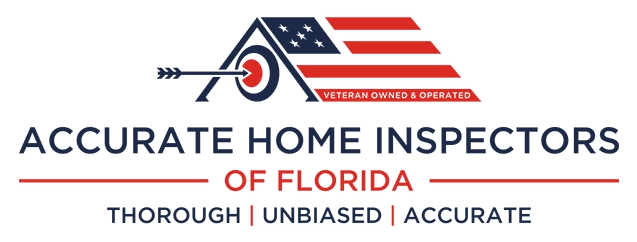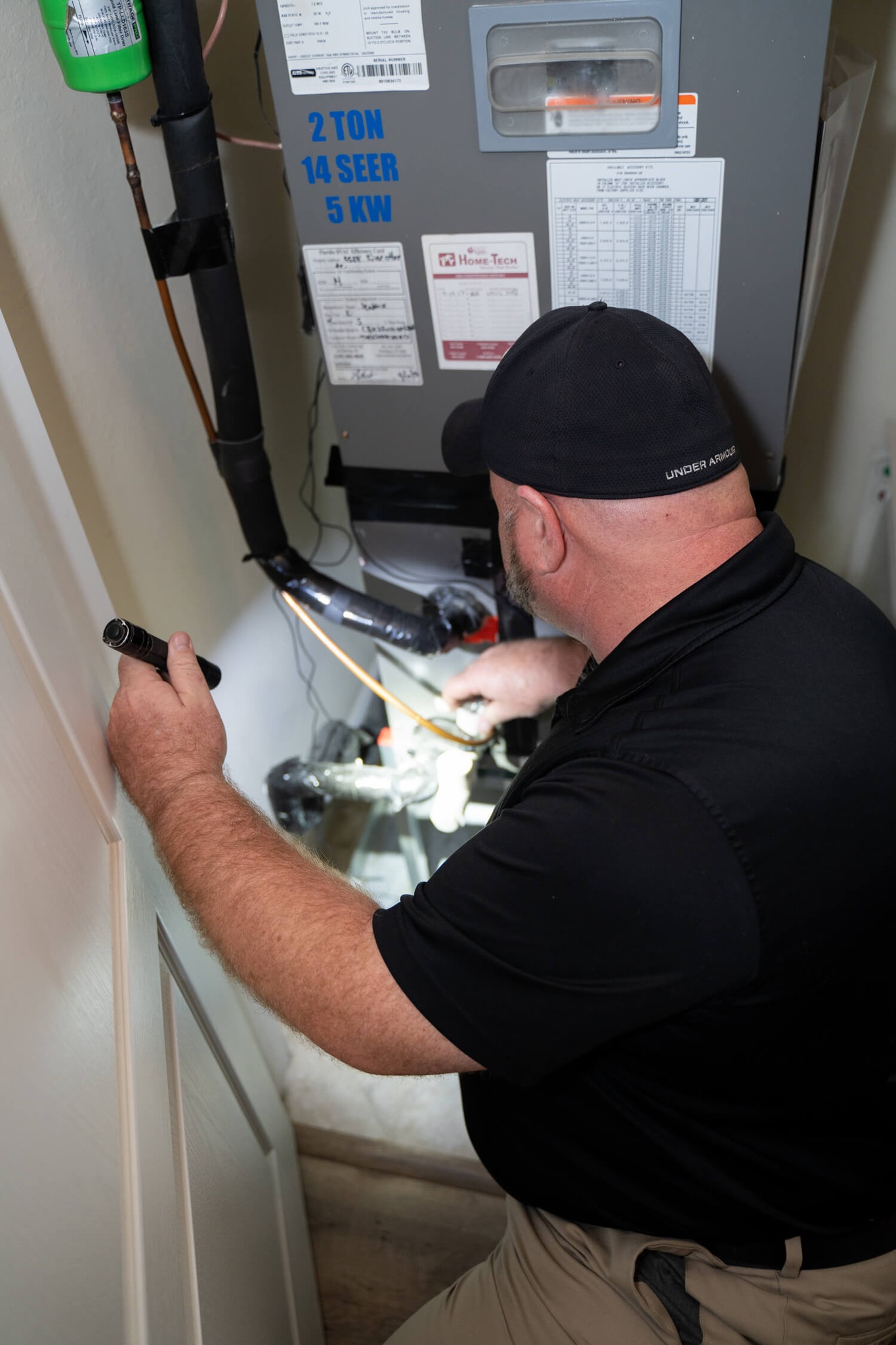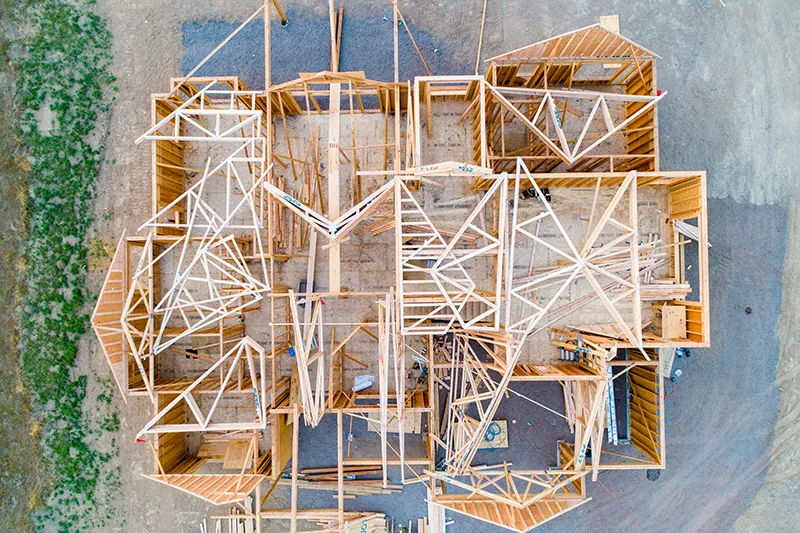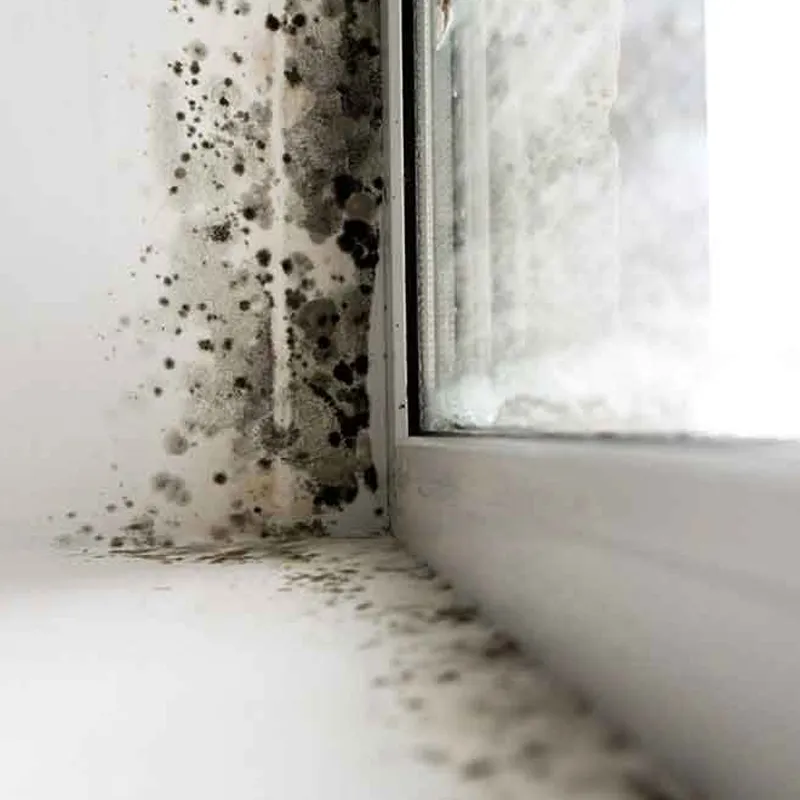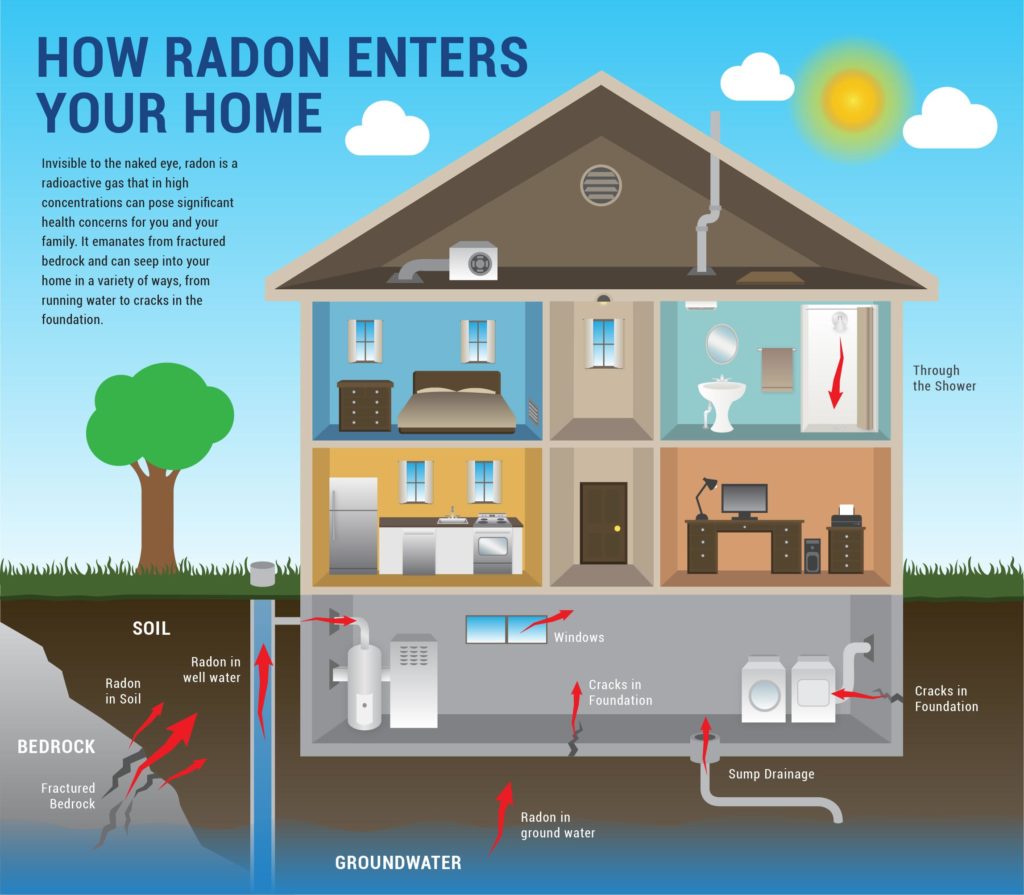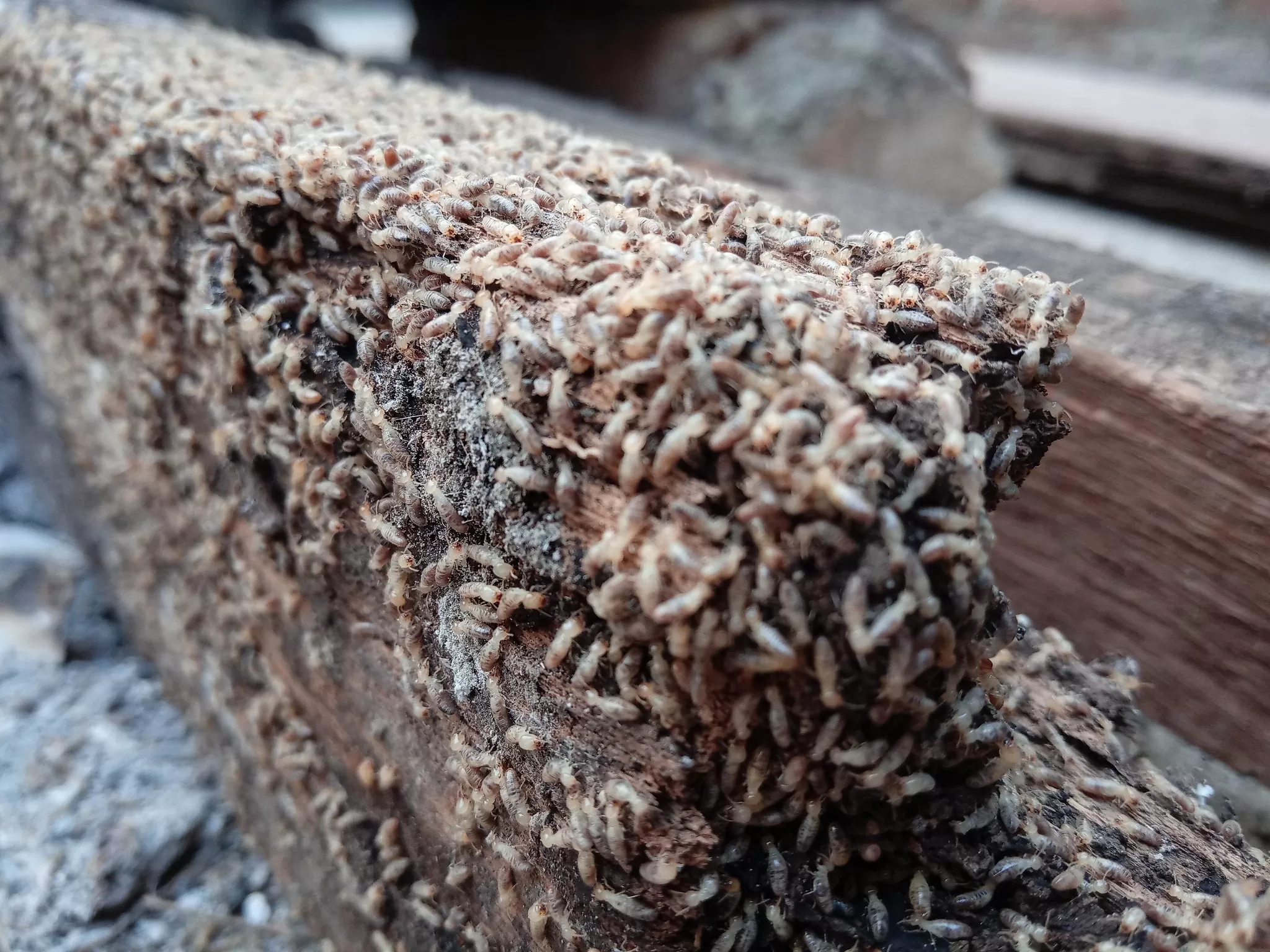Home Inspection Services
Whether you’re buying, selling, or maintaining a property, we provide inspection services that keep you informed and save you money.
What We Do
Residential Home Purchase Inspections
Residential home Inspection services for Houses/Villas, Condos, Manufactured Homes & Pre-Listing Inspections for sellers and agents
New Construction Inspections
Just because something is brand new does not mean it is perfect! We provide both pre-closing & eleventh-month warranty inspections on new construction
Standalone Roofing Inspections
Don’t get “sold” by a roofing company salesman, let us provide you with honest answers about your roof!
Insurance Inspections
Obtaining a 4-Point Inspection and Wind Mitigation can help lower insurance costs and save you money!
Environmental Inspections (Radon, Mold, Air Quality)
Inspections for environmental factors such as Mold, Air Quality, or Radio-active Particles (Radon)
Pest Inspections
Inspections for Termites and Termite Damage
Residential Purchase Inspections
Home / Villa Inspections
This detailed home inspection covers approximately 350-400 items. This is a thorough examination of visible and accessible components of the house from the roof to the slab. This includes exterior, roof, attic, structure, garage, pool and pool equipment, visible well equipment (if applicable), electrical, plumbing, heating/air conditioning, operation of all built-in appliances, interior review of ceilings, walls, and floors. It also includes checking all rooms for functional operation of windows, doors, electrical outlets, lights, ceiling fans, etc.
Condo Inspections
This is a thorough examination of visible and accessible components of the Condominium. This normally covers 300+ items. These include the attic (if present & accessible), structure, garage, electrical, plumbing, heating/air conditioning, operation of all built-in appliances, interior review of ceilings, walls, floors, etc.. It also includes checking all rooms for functional operation of windows, doors, electrical outlets, lights, ceiling fans, etc.. Typically, exterior, roof and common area items are the responsibility of the Homeowners Association and are viewed for informational purposes only.
Pre-Manufactured Home Inspections
This inspection covers approximately 350+ items. This is a thorough examination of visible and accessible components of the house from the roof to the foundation. This includes the crawlspace (if accessible) ,exterior, roof, attic space (if accessible), structure, garage / carport, pool and pool equipment, visible well equipment (if applicable), electrical, plumbing, heating/air conditioning, operation of all built-in appliances, interior review of ceilings, walls, floors. It also includes checking all rooms for functional operation of windows, doors, electrical outlets, lights, ceiling fans, etc..
Pre-Listing Inspections
As we all know, a great many things can happen during a real estate transaction. There are a lot of “moving parts” and some of them can be problematic to the sale. We can help! Our pre-listing inspection will inform the seller and listing agent of all issues that have the potential to derail a sale. We outline the issues and advise on which issues should be repaired so that any subsequent inspections do not ” kill” the deal. Smart homeowners know that a pre-listing inspection (prior to putting their home on the market) can help ensure a more smooth transaction.
New Construction Inspections
Documenting construction deficiencies / defects using a third party professional is the only safe way for a buyer to fully protect their rights. It can ensure that the builder takes their request for repairs seriously. This document can also serve as a legal document of defects that will protect the buyers’ rights after the warranty period expires. A full inspection just a few days prior to closing, and a follow up inspection within a few weeks of the warranty period expiring can help document many present defects and those that may manifest themselves over time.
Pre-Closing Inspections
Documenting construction deficiencies / defects using a third-party professional is the only safe way for a buyer to fully protect their rights. It can ensure that the builder takes their request for repairs seriously. This document can also serve as a legal document of defects that will protect the buyers’ rights after the warranty period expires.
Eleventh-Month Inspection
A follow-up inspection within a few weeks of the warranty period expiring can help document many present defects and those that may manifest themselves over time.
Standalone Roofing Inspections
Residential & Commercial Roofing Inspections
Roofing repairs can be very expensive highly impactful to both residential and commercial properties. Having your roofing inspection completed by an independent inspector ensures that you’re receiving accurate information to make your decisions without the inherent bias of a salesman that is depending on your purchase for their paycheck.
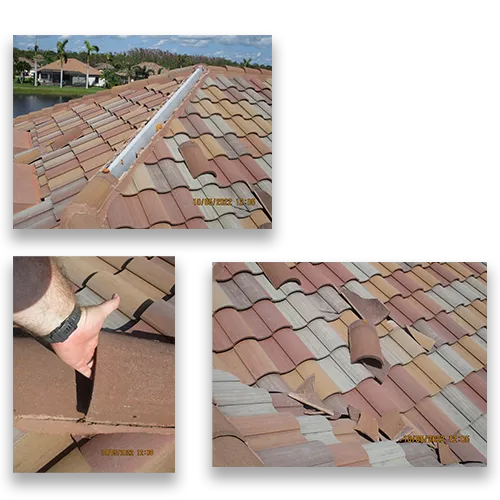
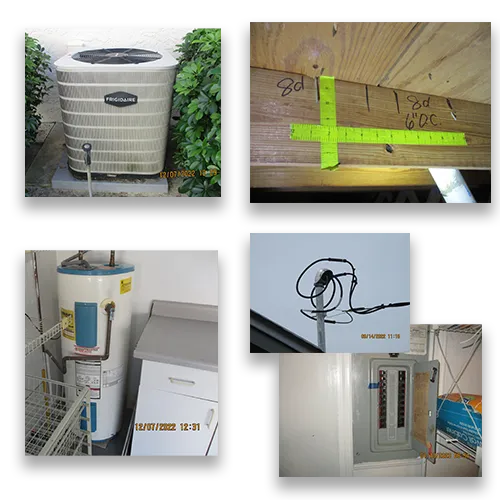
Insurance Inspections
Four-Point Inspection
What is a Four Point Inspection? What are the Four Points? It’s not as complicated as you might think. A Four Point Inspection is used by insurance companies to determine certain aspects relating to the four “main” components of your home.
These include the roof, electrical system, plumbing system and HVAC (Air Conditioning) system. The report tells them the type, age, condition and estimated serviceable life of these components. While this inspection does give some insight as to the overall condition of these components, it is not as complete or exhaustive as a full home inspection and should not be used in place of one. Depending on the age of the home and the insurance companies requirements, you may need a Four Point inspection if you are buying a new home, or changing insurance companies. Please give us a call to schedule your Four Point inspection today!
Wind Mitigation Inspection
You may have heard this term before. What does it really mean though? Put simply, it is an inspection used by the insurance companies to verify certain aspects of your home’s roof system. Some of these aspects include the building age, roofing materials &, age, shape (hip, gable, flat, etc.), roof deck attachment, rafter / truss attachment and the presence / absence of glazed opening protections. They use this information to determine their level of risk in a weather event / loss and to determine if your home qualifies for certain discounts relating to your homeowner’s policy. For example, a new roof might qualify for a greater discount due to upgraded building standards from when the original roof was installed. If you are buying a new home, changing insurance companies, or if it has been more than 5 years since the last time you had a wind mitigation inspection, please let us tell you how we can help you save money (maybe a lot of money)!
Environmental Inspections: Mold & Air Quality
What is Mold?
Mold & Air Quality Testing
The process that we follow includes visual inspections of the home and its components, assessment of conditions that may be conducive to biological growth and testing via non-viable (non-living) air sampling and /or viable (living) sampling (ex. swabs / tape lifts). The non-viable air sampling is an indoor air quality test for the presence of mold spores in the inhabited areas of the home. We take an air sample of the outside air (as a control) and one near / at the A/C return, (if there is more than one A/C system, then we take a sample at each return for that unit). This will tell you what types of mold spores are present in the air, in the home and at what levels. These often differ depending on the situation and conditions observed at the time of the inspection.
Scope of air sample testing/exclusions: the scope of this testing is the visual and accessible areas of the home. We do not do anything destructive such as removing drywall, baseboard, flooring, or access enclosed duct work. Air sample tests are unlikely to pick up mold growing in enclosed, concealed or restricted locations such as wall cavities; under flooring; behind furnishings and may not pick up mold in the HVAC system and its components if no spores are being actively released into the home. We use a fully accredited local testing laboratory and the lab results are reviewed by an experienced mold professional. Test results are normally back within 1-2 business days.
Protocols for Mold Air Quality Testing
- All windows and doors should be kept shut except for normal exit or entry during the testing period.
- The A/C set on a normal setting 12 hours prior to us coming out to the property.
- The A/C set to between 67-77 degrees on auto-cool setting during the testing period.
- No vacuuming the day of testing. This can cause erroneous results.
- There needs to be no rain present for at least 1 hour prior to testing. If it is raining during the inspection period, we may need to reschedule the test.
Ask us how we can help determine if you have a mold issue!
Environmental Inspections: Radon
What is Radon?
How do I know if I have Radon in my home?
What do I do if I have radon in my home above the EPA’s recommendation?
Pest & Pest Damage Inspections
Termite Inspections
Termites? Yes there are termites in Florida. Four different types to be exact. We have all heard about termites, but do you know how much damage they can really cause?
The Florida Department of Agriculture states that termites cause more damage to structures than fires, floods and storms combined.
Contrary to popular belief, your Homeowner’s Insurance policy will likely not cover damage of this type. If you are purchasing a home, It is critical that you hire a licensed pest control company to inspect for termites and other wood destroying organisms (WDOs). We have partnered with local licensed pest control professionals who can help by providing inspections with reports to give greater peace of mind about this facet of the purchase. We make the call, schedule the termite inspection (for the same time as the home inspection ), follow up by forwarding the report when completed thereby making the process quick & easy for everyone!
The Florida Department of Agriculture provides some very helpful information about Termites available here; https://www.fdacs.gov/Consumer-Resources/Health-and-Safety/Protect-Your-Home-from-Pests/Termites
We solve the large problem of making a sound decision as to whether or not to purchase a home and give guidance as to the potential for issues with the home’s components in the future.
